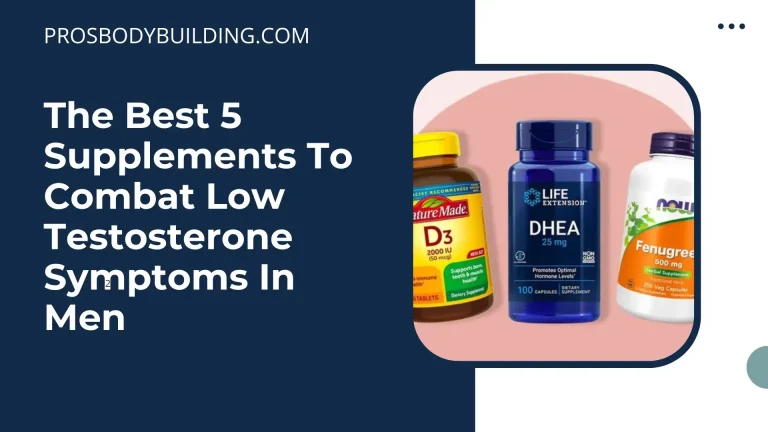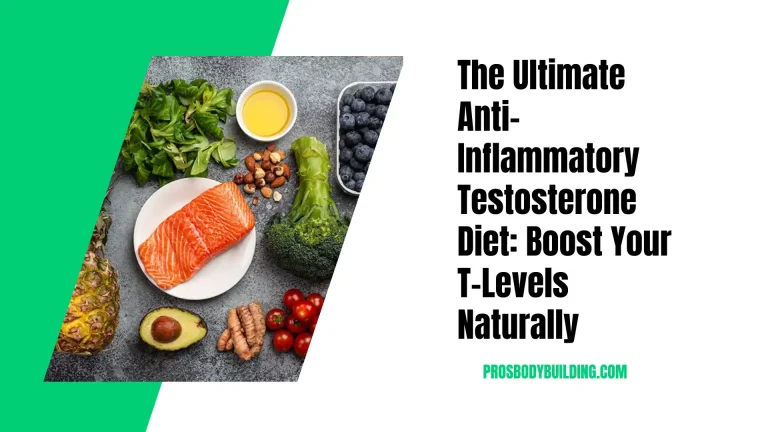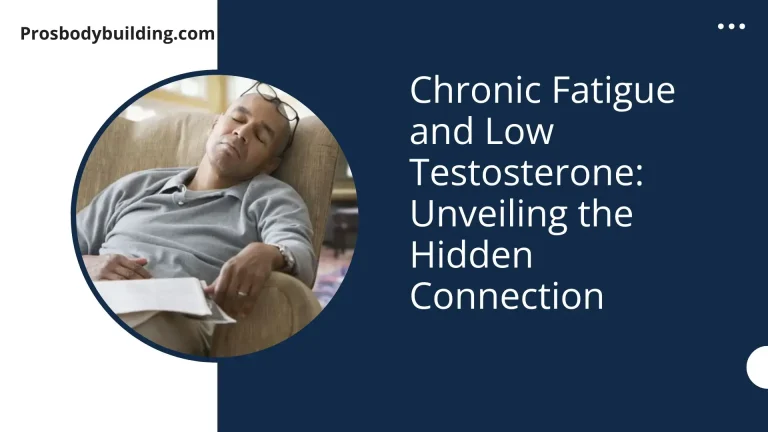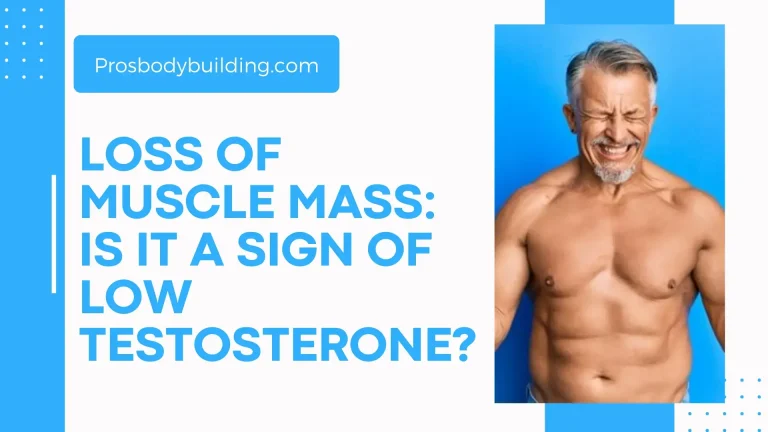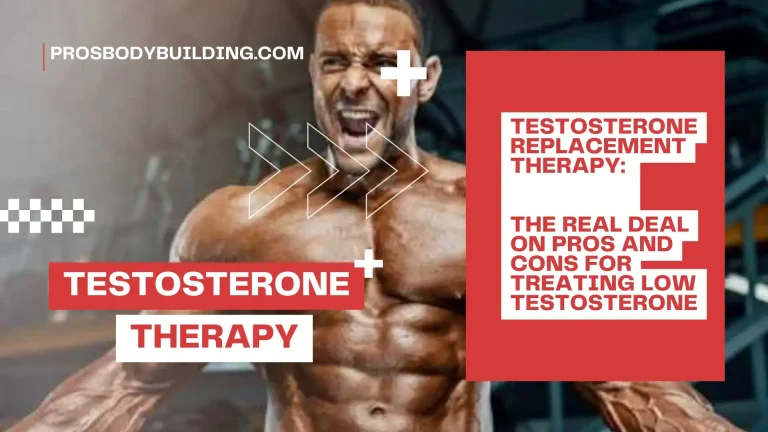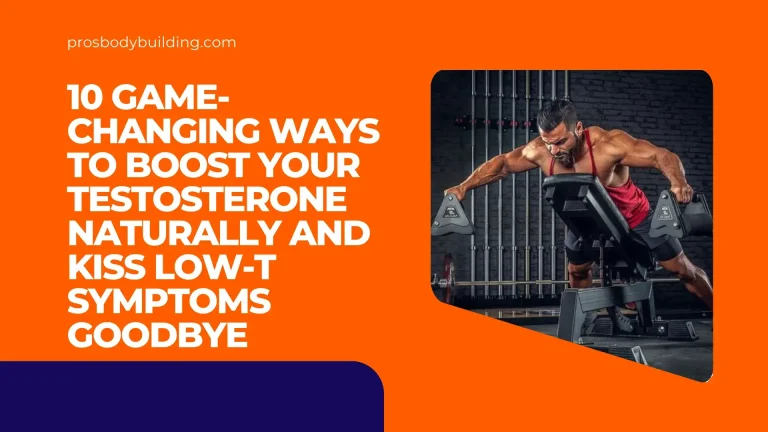Low Testosterone in Athletes: 10 Warning Signs and Proven Solutions for 2025
Alright, fellow athletes, let’s talk about the elephant in the locker room – low testosterone. Yeah, I know, it’s not exactly dinner table conversation, but trust me, this is something you need to know about.
Picture this: You’re crushing it at the gym, dominating your sport, and then suddenly… wham! Your performance takes a nosedive. What gives? Well, it might just be your hormones playing tricks on you.
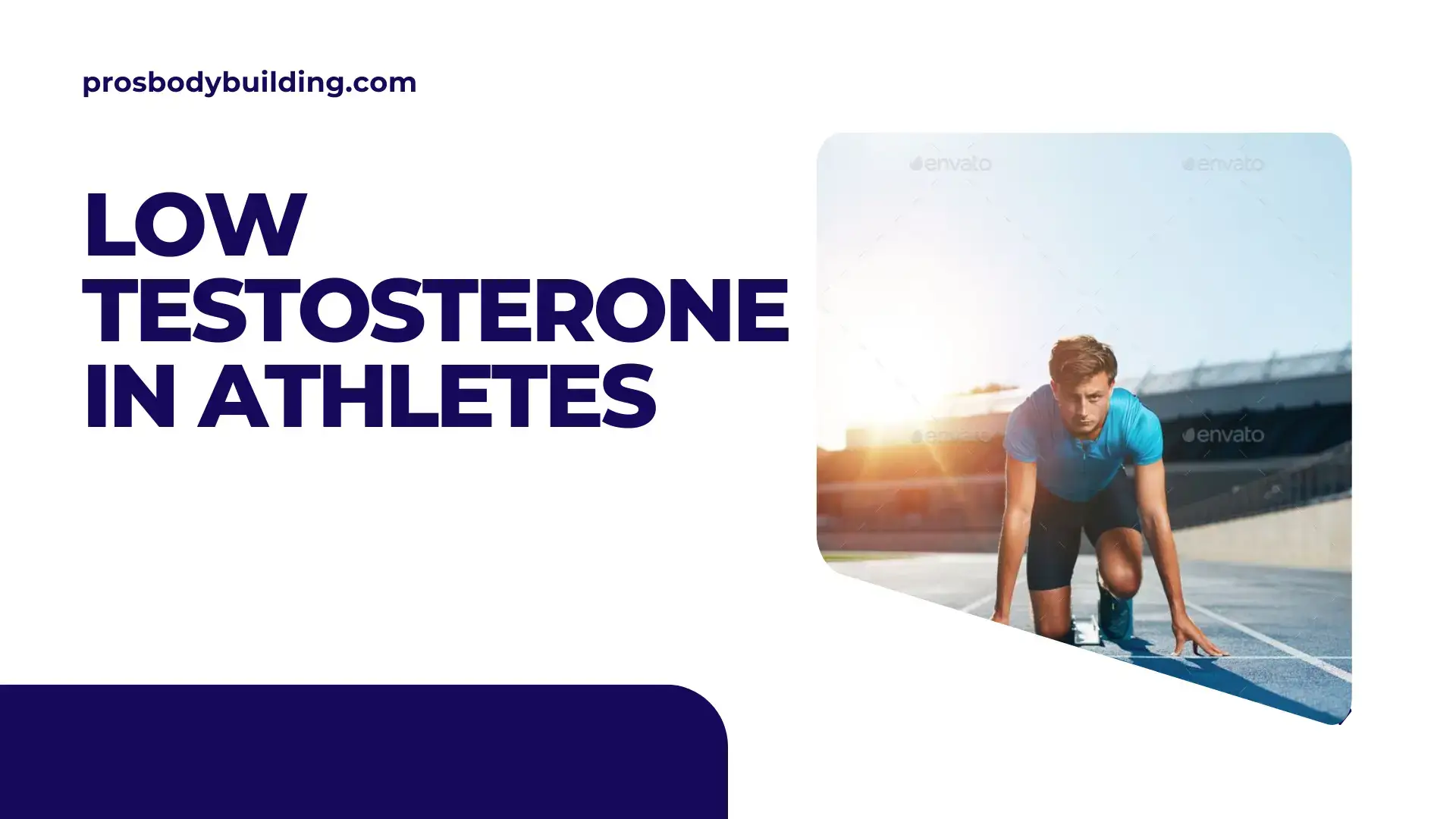
I’ll never forget when my buddy Jake, a college track star, hit this wall. He went from breaking records to barely making it through practice. Turns out, low T was the culprit. And get this – he’s not alone. A study in the Journal of Clinical Endocrinology & Metabolism dropped this bomb: up to 13% of male athletes might be dealing with low testosterone levels. That’s more than 1 in 10 of us!
But here’s the good news – I’ve done the heavy lifting (pun intended) and dug deep into the world of low T in athletes. I’m talking symptoms, causes, and most importantly, solutions that actually work. Whether you’re a weekend warrior or gunning for the Olympics, this guide is your secret weapon for reclaiming your mojo in 2025.
So, grab your protein shake, and let’s dive in. It’s time to show low T who’s boss!
What is Testosterone and Why Does it Matter for Athletes?
Alright, let’s break this down. Testosterone – it’s not just about growing chest hair and a deep voice. For us athletes, it’s liquid gold. Here’s the deal:
Testosterone 101
Think of it as your body’s natural performance enhancer. It’s the hormone that helps build muscle, burn fat, and gives you that competitive edge.
Athletic superpower
Without enough T, you might as well be trying to win a marathon in flip-flops. It’s crucial for strength, endurance, and recovery.
The numbers game
“Normal” testosterone levels vary, but for guys, we’re talking 300-1000 ng/dL. Ladies, you need it too, just less – about 15-70 ng/dL.
T-killers
Here’s the kicker – everything from your diet to how much you sleep can mess with your T levels. Even overtraining (yeah, there is such a thing) can tank your testosterone.
10 Warning Signs of Low Testosterone in Athletes
Ever feel like your body’s staging a mutiny? Here are the red flags that might mean low T is trying to bench you:
- Muscle Meltdown: You’re hitting the weights hard, but your gains have gone MIA. Low T can turn your muscles into couch potatoes.
- Endurance Exodus: Remember when you could run for days? Now you’re wheezing after a warm-up. Low T might be stealing your stamina.
- Belly Rebellion: That six-pack is playing hide and seek under a new layer of flab. Testosterone helps keep the fat off, especially around your middle.
- Mood Rollercoaster: One minute you’re ready to take on the world, the next you’re snapping at your training partner. Low T can turn you into an emotional pinball.
- Libido Limbo: Your mojo’s gone AWOL. Whether you’re single or partnered up, a nosedive in your sex drive could be a low T tell.
- Insomnia Invasion: You’re tossing and turning more than a gymnast. Quality sleep and testosterone go hand in hand.
- Brain Fog: Can’t remember your workout routine? Struggling to focus during game time? Your brain needs T to stay sharp.
- Recovery Roadblocks: You used to bounce back like a rubber band. Now, you’re sore for days. Low T can seriously slow your recovery.
- Injury Influx: Suddenly, you’re on a first-name basis with your physical therapist. Low testosterone can weaken bones and make you more prone to injuries.
- Fatigue Fiesta: Your energy levels are lower than a limbo stick. If you’re dragging yourself through workouts, low T might be the party pooper.
Common Causes of Low Testosterone in Athletes
Let’s play detective and uncover the usual suspects behind low T:
- Overtraining Syndrome: Yes, there’s such a thing as too much of a good thing. Pushing too hard without enough recovery can send your T levels plummeting.
- The Skinny on Diets: Extreme calorie cutting or ditching all fats? Your body needs some fuel to make testosterone. Don’t starve your hormones!
- Stress City: Chronic stress is like kryptonite for testosterone. When cortisol goes up, T goes down. It’s like a hormonal seesaw.
- Sleep Deprivation: Burning the midnight oil? Your testosterone production happens mostly when you’re catching Z’s. No sleep, no T.
- Sup Sabotage: Some supplements and medications can mess with your hormone levels. Always check the fine print!
- The Birthday Effect: As we blow out more candles, our T levels naturally start to dip. It’s not fair, but it’s life.
- Health Hiccups: Sometimes, low T is a sign of an underlying health issue. Don’t play doctor – get checked out if you’re concerned.
Diagnosing Low Testosterone: What Tests Should Athletes Consider?
Time to get scientific! If you suspect low T, here’s your game plan:
- Total Testosterone Test: This is your starting line. It measures all the testosterone floating around in your blood.
- Free Testosterone Test: This is the MVP – it shows how much testosterone your body can actually use.
- LH and FSH Tests: These hormones are like the coaches for testosterone production. If they’re off, your whole team is in trouble.
- Timing is Everything: Testosterone levels change throughout the day. Early morning is usually the best time to test.
- Pro Tip: Don’t try to interpret these results solo. Team up with a healthcare pro who knows their stuff about athletes and hormones.
Natural Solutions to Boost Testosterone Levels in Athletes
Before you start googling “black market steroids” (don’t do it!), try these natural T-boosters:
- Eat Like a Champion: Ditch the junk and load up on lean proteins, healthy fats, and plenty of veggies. Your hormones will thank you.
- Rest Like You Mean It: Recovery isn’t just nice, it’s necessary. Schedule rest days and stick to them like they’re paying you.
- Lift Heavy Things: Compound exercises like squats and deadlifts are like a wake-up call for your testosterone.
- Chill Out: Stress is a T-killer. Try meditation, deep breathing, or whatever helps you zen out.
- Sleep is Your Superpower: Aim for 7-9 hours of quality shut-eye. Your testosterone does its best work while you’re snoozing.
- Vitamin D-lightful: Get some sun or consider a vitamin D supplement. It’s crucial for T production.
- Mineral Magic: Zinc and magnesium are like testosterone’s best friends. Make sure you’re getting enough.
- Herb It Up: Adaptogens like ashwagandha have shown promise in boosting T levels. Worth a shot!
Medical Treatments for Low Testosterone in Athletes
Sometimes, you need to bring in the big guns. Here are some medical options to discuss with your doc:
- Testosterone Replacement Therapy (TRT): It’s exactly what it sounds like – giving your body the T it’s missing. But it’s not without risks, so proceed with caution.
- Clomiphene Citrate: This little pill can kickstart your body’s natural T production.
- HCG Therapy: It mimics a hormone that tells your boys to make more testosterone.
- Aromatase Inhibitors: These can help keep your testosterone from turning into estrogen.
- Find a Specialist: Look for a sports endocrinologist who speaks athlete. They’ll get where you’re coming from.
- Know the Rules: If you’re competing, make sure any treatments are kosher with anti-doping regulations. Nobody wants an asterisk by their name.
- Natural testosterone supplement – Natural T Boosters like Testosil are extremely popular among men who want to raise their testosterone levels naturally and safely.
Remember, I’m not a doctor (shocking, I know), so always consult with a medical professional before starting any treatment. Your body, your choice – but make it an informed one!
Conclusion:
Alright, team, we’ve covered a lot of ground here. Low testosterone might sound like a game-ender, but trust me, it’s just another obstacle to overcome. And if there’s one thing athletes know how to do, it’s overcome obstacles.
Remember Jake, my track star buddy? He tackled his low T head-on. He tweaked his diet, prioritized sleep like it was his job, and worked with a sports endocrinologist to find the right balance. Last I heard, he was back to setting records and feeling better than ever.
The key takeaway? Listen to your body. If something feels off, don’t ignore it. Get tested, make changes, and don’t be afraid to ask for help. Your body is unique – what works for your training partner might not work for you.
So, are you ready to take charge of your hormonal health and unlock your true athletic potential in 2024? The starting line is right here, right now. It’s your move, champ. Let’s show low T who’s boss and get back to crushing those goals!
Now, if you’ll excuse me, I’ve got a date with some heavy weights and a post-workout nap. Gotta keep that testosterone flowing! See you on the field, court, or wherever you dominate. Go get ’em!

